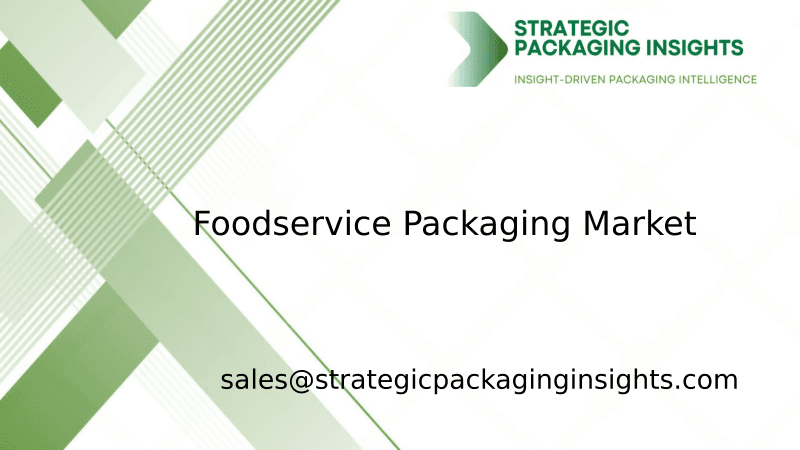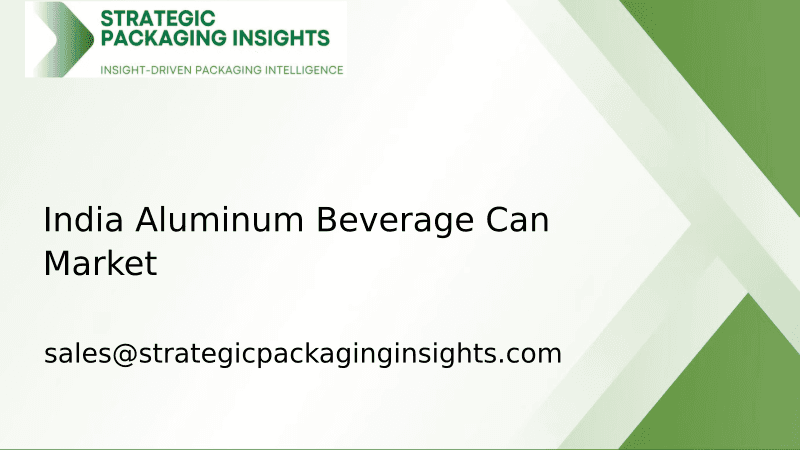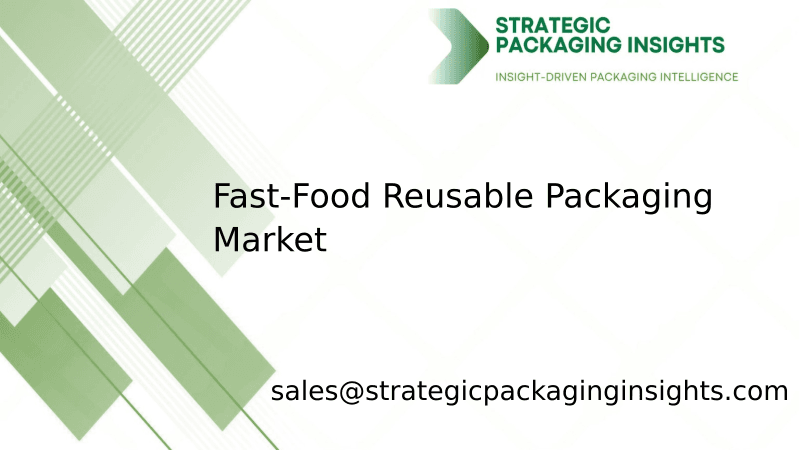- Home
- Packaging Products
- Plastic Cling Film Market Size, Future Growth and Forecast 2033
Plastic Cling Film Market Size, Future Growth and Forecast 2033
Plastic Cling Film Market Segments - by Material Type (Polyethylene, Polyvinyl Chloride, Polyvinylidene Chloride, Others), Application (Food Packaging, Healthcare, Consumer Goods, Industrial, Others), End-User (Retail, Food Service, Healthcare, Industrial, Others), and Region (Asia Pacific, North America, Latin America, Europe, and Middle East & Africa) - Market Dynamics, Growth Opportunities, Strategic Drivers, and PESTLE Outlook (2025–2033)
Plastic Cling Film Market Outlook
The plastic Cling Film market was valued at $1.2 billion in 2024 and is projected to reach $1.8 billion by 2033, growing at a CAGR of 4.5% during the forecast period 2025-2033. This market is driven by the increasing demand for convenient and efficient packaging solutions across various sectors, including food and beverage, healthcare, and consumer goods. The rise in consumer preference for fresh and hygienic food products has significantly boosted the demand for plastic cling films, which are widely used to preserve food quality and extend shelf life. Additionally, the growing trend of online food delivery services and the expansion of retail chains globally are further propelling market growth. Technological advancements in film manufacturing, such as the development of biodegradable and eco-friendly cling films, are also contributing to the market's expansion.
However, the market faces challenges due to stringent environmental regulations and the increasing awareness regarding plastic waste and its impact on the environment. Governments and regulatory bodies worldwide are imposing restrictions on single-use plastics, which could hinder market growth. Despite these challenges, the market holds significant growth potential, particularly with the increasing adoption of Sustainable Packaging solutions. Companies are investing in research and development to innovate and produce environmentally friendly cling films, which are expected to open new avenues for market expansion. The rising demand for recyclable and Biodegradable Films presents lucrative opportunities for manufacturers to cater to the evolving consumer preferences and regulatory requirements.
Report Scope
| Attributes | Details |
| Report Title | Plastic Cling Film Market Size, Future Growth and Forecast 2033 |
| Base Year | 2024 |
| Historic Data | 2017-2023 |
| Forecast Period | 2025-2033 |
| Number of Pages | 182 |
| Material Type | Polyethylene, Polyvinyl Chloride, Polyvinylidene Chloride, Others |
| Application | Food Packaging, Healthcare, Consumer Goods, Industrial, Others |
| End-User | Retail, Food Service, Healthcare, Industrial, Others |
| Region | Asia Pacific, North America, Latin America, Europe, Middle East & Africa |
| Customization Available | Yes* |
Key Highlights Plastic Cling Film Market

- Increasing demand for food packaging solutions is driving market growth.
- Technological advancements in biodegradable cling films are gaining traction.
- Expansion of retail and online food delivery services boosts demand.
- Stringent environmental regulations pose challenges to market growth.
- Rising consumer awareness about food hygiene and safety fuels demand.
- Asia Pacific region is expected to witness the highest growth rate.
- Innovations in eco-friendly packaging solutions are creating new opportunities.
- Polyethylene is the most widely used material type in the market.
- Healthcare sector is emerging as a significant end-user segment.
- Increasing investments in R&D for sustainable packaging solutions.
Competitive Intelligence
The plastic cling film market is highly competitive, with several key players striving to maintain their market position through strategic initiatives such as mergers, acquisitions, and partnerships. Companies like Berry Global Inc., Intertape Polymer Group, and AEP Industries Inc. are leading the market with substantial market shares. Berry Global Inc. has a strong presence in North America and Europe, focusing on innovation and sustainability to enhance its product offerings. Intertape Polymer Group is known for its extensive product portfolio and strong distribution network, which helps it maintain a competitive edge. AEP Industries Inc. emphasizes customer-centric solutions and has a robust presence in the food packaging sector.
Other notable players include Anchor Packaging Inc., Harwal Group, and Wrap Film Systems Ltd., which are focusing on expanding their geographic reach and enhancing their product lines to cater to diverse customer needs. Anchor Packaging Inc. is recognized for its innovative packaging solutions and commitment to sustainability. Harwal Group has a strong foothold in the Middle East and Africa, leveraging its extensive manufacturing capabilities. Wrap Film Systems Ltd. is gaining ground in the European market with its focus on high-quality and eco-friendly cling films. The competitive landscape is characterized by continuous product innovation, strategic collaborations, and a focus on sustainability to meet the evolving consumer demands and regulatory requirements.
Regional Market Intelligence of Plastic Cling Film
The global plastic cling film market is segmented into major regions, including North America, Europe, Asia-Pacific, Latin America, and the Middle East & Africa. North America holds a significant market share, valued at approximately $400 million in 2024, with a projected growth rate of 3.5% CAGR. The region's growth is driven by the high demand for packaged food products and the presence of major market players. Europe follows closely, with a market size of $350 million in 2024 and a CAGR of 3.0%, driven by stringent regulations promoting sustainable packaging solutions.
Asia-Pacific is expected to witness the highest growth rate, with a market size of $300 million in 2024 and a CAGR of 5.5%. The region's growth is attributed to the expanding retail sector, increasing disposable income, and rising consumer awareness about food safety. Latin America and the Middle East & Africa are also experiencing steady growth, with market sizes of $100 million and $50 million, respectively, in 2024. The growth in these regions is driven by the increasing adoption of modern retail formats and the growing demand for convenient packaging solutions.
Top Countries Insights in Plastic Cling Film
The United States leads the plastic cling film market with a market size of $350 million and a CAGR of 3%. The country's growth is driven by the high demand for packaged food products and the presence of major market players. China follows with a market size of $250 million and a CAGR of 6%, driven by the expanding retail sector and increasing consumer awareness about food safety. Germany, with a market size of $150 million and a CAGR of 2%, is driven by stringent regulations promoting sustainable packaging solutions.
India, with a market size of $100 million and a CAGR of 7%, is experiencing rapid growth due to the increasing adoption of modern retail formats and rising disposable income. Brazil, with a market size of $80 million and a CAGR of 4%, is driven by the growing demand for convenient packaging solutions and the expansion of the food and beverage industry. These countries are witnessing significant growth due to favorable government policies, increasing consumer awareness, and the rising demand for sustainable packaging solutions.
Plastic Cling Film Market Segments Insights

Material Type Analysis
The plastic cling film market is segmented by material type into polyethylene, polyvinyl chloride, polyvinylidene chloride, and others. Polyethylene is the most widely used material type, owing to its excellent clarity, flexibility, and cost-effectiveness. The demand for polyethylene cling films is driven by their widespread application in food packaging, where they help preserve freshness and extend shelf life. Polyvinyl chloride (PVC) cling films are also popular due to their superior cling properties and durability, making them ideal for wrapping perishable goods. However, the use of PVC is declining due to environmental concerns and regulatory restrictions, prompting manufacturers to explore alternative materials.
Polyvinylidene chloride (PVDC) cling films are gaining traction due to their excellent barrier properties, which help in preserving the aroma and flavor of packaged food products. The demand for PVDC films is particularly high in the food packaging sector, where maintaining product quality is crucial. Other materials, such as biodegradable and compostable films, are emerging as sustainable alternatives to traditional plastic cling films. These eco-friendly options are gaining popularity among environmentally conscious consumers and are expected to drive market growth in the coming years.
Application Analysis
The application segment of the plastic cling film market includes food packaging, healthcare, consumer goods, industrial, and others. Food packaging is the largest application segment, accounting for a significant share of the market. The demand for plastic cling films in food packaging is driven by the need to preserve food quality, extend shelf life, and ensure hygiene. The growing trend of online food delivery services and the expansion of retail chains are further boosting the demand for cling films in this segment.
The healthcare sector is emerging as a significant application segment, with increasing demand for sterile and hygienic packaging solutions. Plastic cling films are used in the healthcare industry for wrapping medical devices, instruments, and other products to prevent contamination. The consumer goods and industrial segments are also witnessing steady growth, driven by the need for Protective Packaging solutions that ensure product safety during transportation and storage. The versatility and cost-effectiveness of plastic cling films make them a preferred choice across various applications.
End-User Analysis
The end-user segment of the plastic cling film market includes retail, food service, healthcare, industrial, and others. The retail sector is the largest end-user segment, driven by the increasing demand for packaged food products and the expansion of retail chains globally. The growing trend of online shopping and home delivery services is further boosting the demand for plastic cling films in the retail sector. The food service industry is also a significant end-user, with increasing demand for hygienic and convenient packaging solutions for takeout and delivery services.
The healthcare sector is emerging as a key end-user segment, with the growing need for sterile and hygienic packaging solutions. Plastic cling films are used in the healthcare industry for wrapping medical devices, instruments, and other products to prevent contamination. The industrial sector is also witnessing steady growth, driven by the need for protective packaging solutions that ensure product safety during transportation and storage. The versatility and cost-effectiveness of plastic cling films make them a preferred choice across various end-user segments.
Regional Analysis
The regional analysis of the plastic cling film market highlights the growth patterns and key drivers in different regions. North America holds a significant market share, driven by the high demand for packaged food products and the presence of major market players. The region's growth is also supported by technological advancements in film manufacturing and the increasing adoption of sustainable packaging solutions. Europe follows closely, with a focus on sustainability and stringent regulations promoting the use of eco-friendly packaging materials.
Asia-Pacific is expected to witness the highest growth rate, driven by the expanding retail sector, increasing disposable income, and rising consumer awareness about food safety. The region's growth is also supported by the increasing adoption of modern retail formats and the growing demand for convenient packaging solutions. Latin America and the Middle East & Africa are also experiencing steady growth, driven by the increasing adoption of modern retail formats and the growing demand for convenient packaging solutions. These regions are witnessing significant growth due to favorable government policies, increasing consumer awareness, and the rising demand for sustainable packaging solutions.
The market share analysis of the plastic cling film market reveals that Berry Global Inc., Intertape Polymer Group, and AEP Industries Inc. are leading the market with substantial shares. Berry Global Inc. has a strong presence in North America and Europe, focusing on innovation and sustainability to enhance its product offerings. Intertape Polymer Group is known for its extensive product portfolio and strong distribution network, which helps it maintain a competitive edge. AEP Industries Inc. emphasizes customer-centric solutions and has a robust presence in the food packaging sector. Other notable players include Anchor Packaging Inc., Harwal Group, and Wrap Film Systems Ltd., which are focusing on expanding their geographic reach and enhancing their product lines to cater to diverse customer needs. The competitive landscape is characterized by continuous product innovation, strategic collaborations, and a focus on sustainability to meet the evolving consumer demands and regulatory requirements.
Plastic Cling Film Market Segments
The Plastic Cling Film market has been segmented on the basis of
Material Type
- Polyethylene
- Polyvinyl Chloride
- Polyvinylidene Chloride
- Others
Application
- Food Packaging
- Healthcare
- Consumer Goods
- Industrial
- Others
End-User
- Retail
- Food Service
- Healthcare
- Industrial
- Others
Region
- Asia Pacific
- North America
- Latin America
- Europe
- Middle East & Africa
Primary Interview Insights
What are the key drivers of growth in the plastic cling film market?
What challenges does the plastic cling film market face?
Which region is expected to witness the highest growth rate?
What are the emerging trends in the plastic cling film market?
How are companies responding to the demand for sustainable packaging solutions?
Latest Reports

The fiber drums market was valued at $1.2 billion in 2024 and is projected to reach $2.1 billion by 2033, growing at a CAGR of 6.5% during the forecast period 2025–2033.

The cosmetics and perfumery glass bottles market was valued at $1.5 billion in 2024 and is projected to reach $2.3 billion by 2033, growing at a CAGR of 4.8% during the forecast period 2025–2033.

The medical devices packaging market was valued at $25 billion in 2024 and is projected to reach $40 billion by 2033, growing at a CAGR of 5.5% during the forecast period 2025–2033.

The primary packaging labels market was valued at $35 billion in 2024 and is projected to reach $55 billion by 2033, growing at a CAGR of 5.2% during the forecast period 2025–2033.

The corrugated board packaging market was valued at $250 billion in 2024 and is projected to reach $380 billion by 2033, growing at a CAGR of 4.5% during the forecast period 2025–2033.

The Water Soluble Packaging Films market was valued at $2.8 billion in 2024 and is projected to reach $5.6 billion by 2033, growing at a CAGR of 8.1% during the forecast period 2025–2033.

The Aluminium Foil Packaging market was valued at $25 billion in 2024 and is projected to reach $40 billion by 2033, growing at a CAGR of 5.5% during the forecast period 2025–2033.

The self-heating food packaging market was valued at $4.5 billion in 2024 and is projected to reach $7.8 billion by 2033, growing at a CAGR of 6.2% during the forecast period 2025–2033.

The Smart Container market was valued at $2.5 billion in 2024 and is projected to reach $8.7 billion by 2033, growing at a CAGR of 14.5% during the forecast period 2025–2033.

The Automatic Labeling Machine market was valued at $2.5 billion in 2024 and is projected to reach $4.8 billion by 2033, growing at a CAGR of 7.2% during the forecast period 2025–2033.

The Hot Melt Glue Labeler market was valued at $1.2 billion in 2024 and is projected to reach $2.3 billion by 2033, growing at a CAGR of 6.5% during the forecast period 2025–2033.

The Ethical Label market was valued at $1.5 billion in 2024 and is projected to reach $3.2 billion by 2033, growing at a CAGR of 8.5% during the forecast period 2025–2033.

The Packaging Tensioner market was valued at $1.2 billion in 2024 and is projected to reach $2.3 billion by 2033, growing at a CAGR of 6.5% during the forecast period 2025–2033.

The foodservice packaging market was valued at $120 billion in 2024 and is projected to reach $180 billion by 2033, growing at a CAGR of 4.5% during the forecast period 2025–2033.

The nano-enabled packaging market was valued at $15.2 billion in 2024 and is projected to reach $35.6 billion by 2033, growing at a CAGR of 9.5% during the forecast period 2025–2033.

The Cold Seal Packaging market was valued at $1.5 billion in 2024 and is projected to reach $2.3 billion by 2033, growing at a CAGR of 4.8% during the forecast period 2025–2033.

The Transparent Barrier Packaging Films market was valued at $12.5 billion in 2024 and is projected to reach $20.3 billion by 2033, growing at a CAGR of 5.8% during the forecast period 2025–2033.

The Flatback Tape market was valued at $2.5 billion in 2024 and is projected to reach $4.1 billion by 2033, growing at a CAGR of 5.8% during the forecast period 2025–2033.

The packer bottle market was valued at $3.5 billion in 2024 and is projected to reach $5.8 billion by 2033, growing at a CAGR of 5.2% during the forecast period 2025–2033.

The Canada Nano-Enabled Packaging Food Beverages market was valued at $1.2 billion in 2024 and is projected to reach $3.5 billion by 2033, growing at a CAGR of 12.5% during the forecast period 2025–2033.

The India Aluminum Beverage Can market was valued at $1.2 billion in 2024 and is projected to reach $2.5 billion by 2033, growing at a CAGR of 8.5% during the forecast period 2025–2033.

The fast-food reusable packaging market was valued at $1.2 billion in 2024 and is projected to reach $3.5 billion by 2033, growing at a CAGR of 12.5% during the forecast period 2025–2033.

The pallets market was valued at $59.91 billion in 2024 and is projected to reach $88.69 billion by 2033, growing at a CAGR of 4.5% during the forecast period 2025–2033.

The lamination adhesives market was valued at $2.5 billion in 2024 and is projected to reach $4.1 billion by 2033, growing at a CAGR of 5.8% during the forecast period 2025–2033.

The garment packing machine market was valued at $1.2 billion in 2024 and is projected to reach $2.5 billion by 2033, growing at a CAGR of 8.5% during the forecast period 2025–2033.

The fiber drums market was valued at $1.2 billion in 2024 and is projected to reach $2.1 billion by 2033, growing at a CAGR of 6.5% during the forecast period 2025–2033.

The cosmetics and perfumery glass bottles market was valued at $1.5 billion in 2024 and is projected to reach $2.3 billion by 2033, growing at a CAGR of 4.8% during the forecast period 2025–2033.

The medical devices packaging market was valued at $25 billion in 2024 and is projected to reach $40 billion by 2033, growing at a CAGR of 5.5% during the forecast period 2025–2033.

The primary packaging labels market was valued at $35 billion in 2024 and is projected to reach $55 billion by 2033, growing at a CAGR of 5.2% during the forecast period 2025–2033.

The corrugated board packaging market was valued at $250 billion in 2024 and is projected to reach $380 billion by 2033, growing at a CAGR of 4.5% during the forecast period 2025–2033.

The Water Soluble Packaging Films market was valued at $2.8 billion in 2024 and is projected to reach $5.6 billion by 2033, growing at a CAGR of 8.1% during the forecast period 2025–2033.

The Aluminium Foil Packaging market was valued at $25 billion in 2024 and is projected to reach $40 billion by 2033, growing at a CAGR of 5.5% during the forecast period 2025–2033.

The self-heating food packaging market was valued at $4.5 billion in 2024 and is projected to reach $7.8 billion by 2033, growing at a CAGR of 6.2% during the forecast period 2025–2033.

The Smart Container market was valued at $2.5 billion in 2024 and is projected to reach $8.7 billion by 2033, growing at a CAGR of 14.5% during the forecast period 2025–2033.

The Automatic Labeling Machine market was valued at $2.5 billion in 2024 and is projected to reach $4.8 billion by 2033, growing at a CAGR of 7.2% during the forecast period 2025–2033.

The Hot Melt Glue Labeler market was valued at $1.2 billion in 2024 and is projected to reach $2.3 billion by 2033, growing at a CAGR of 6.5% during the forecast period 2025–2033.

The Ethical Label market was valued at $1.5 billion in 2024 and is projected to reach $3.2 billion by 2033, growing at a CAGR of 8.5% during the forecast period 2025–2033.

The Packaging Tensioner market was valued at $1.2 billion in 2024 and is projected to reach $2.3 billion by 2033, growing at a CAGR of 6.5% during the forecast period 2025–2033.

The foodservice packaging market was valued at $120 billion in 2024 and is projected to reach $180 billion by 2033, growing at a CAGR of 4.5% during the forecast period 2025–2033.

The nano-enabled packaging market was valued at $15.2 billion in 2024 and is projected to reach $35.6 billion by 2033, growing at a CAGR of 9.5% during the forecast period 2025–2033.

The Cold Seal Packaging market was valued at $1.5 billion in 2024 and is projected to reach $2.3 billion by 2033, growing at a CAGR of 4.8% during the forecast period 2025–2033.

The Transparent Barrier Packaging Films market was valued at $12.5 billion in 2024 and is projected to reach $20.3 billion by 2033, growing at a CAGR of 5.8% during the forecast period 2025–2033.

The Flatback Tape market was valued at $2.5 billion in 2024 and is projected to reach $4.1 billion by 2033, growing at a CAGR of 5.8% during the forecast period 2025–2033.

The packer bottle market was valued at $3.5 billion in 2024 and is projected to reach $5.8 billion by 2033, growing at a CAGR of 5.2% during the forecast period 2025–2033.

The Canada Nano-Enabled Packaging Food Beverages market was valued at $1.2 billion in 2024 and is projected to reach $3.5 billion by 2033, growing at a CAGR of 12.5% during the forecast period 2025–2033.

The India Aluminum Beverage Can market was valued at $1.2 billion in 2024 and is projected to reach $2.5 billion by 2033, growing at a CAGR of 8.5% during the forecast period 2025–2033.

The fast-food reusable packaging market was valued at $1.2 billion in 2024 and is projected to reach $3.5 billion by 2033, growing at a CAGR of 12.5% during the forecast period 2025–2033.

The pallets market was valued at $59.91 billion in 2024 and is projected to reach $88.69 billion by 2033, growing at a CAGR of 4.5% during the forecast period 2025–2033.

The lamination adhesives market was valued at $2.5 billion in 2024 and is projected to reach $4.1 billion by 2033, growing at a CAGR of 5.8% during the forecast period 2025–2033.

The garment packing machine market was valued at $1.2 billion in 2024 and is projected to reach $2.5 billion by 2033, growing at a CAGR of 8.5% during the forecast period 2025–2033.
